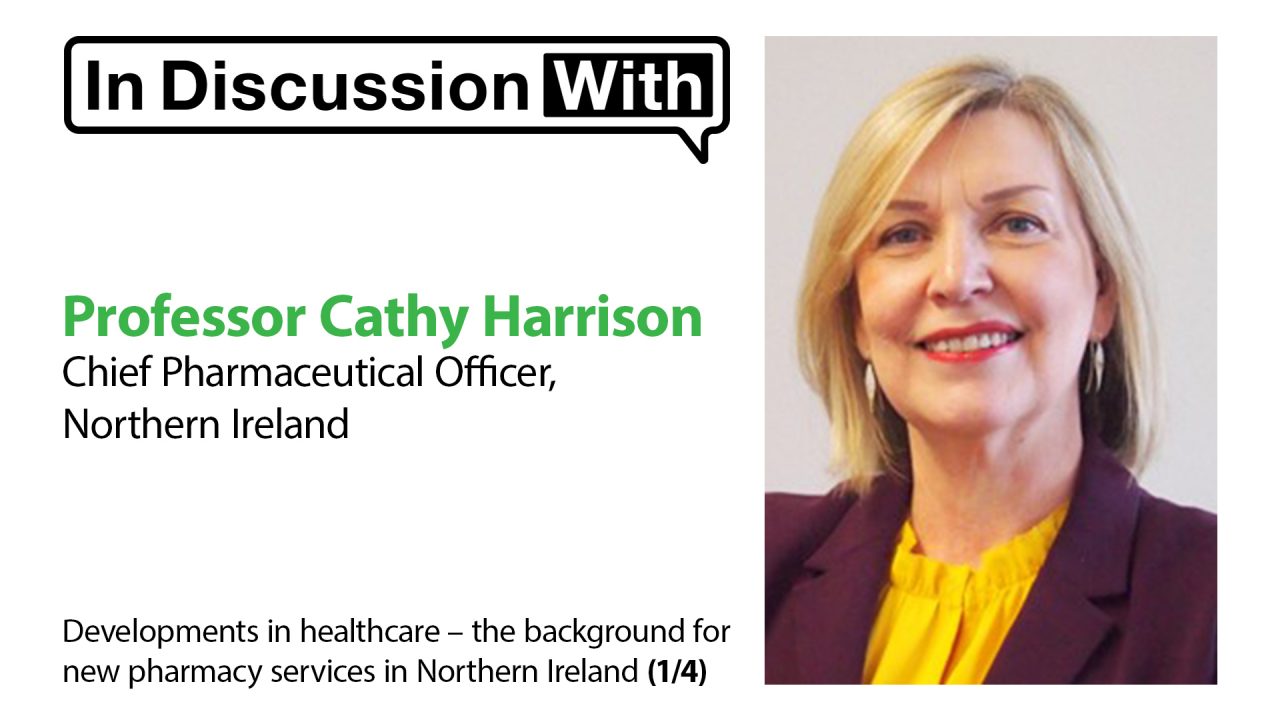Advertisment
Developments in healthcare – the background for new pharmacy services in Northern Ireland

As the keynote speaker at the 2024 ESCP symposium in Krakow, Poland, Professor Cathy Harrison (Chief Pharmaceutical Officer at the Department of Health in Northern Ireland) described how innovative clinical pharmacy services have been developed that both improve patient care and save money. IMI interviewed Professor Harrison to find out more.
The policy context
Professor Cathy Harrison is the Chief Pharmaceutical Officer at the Department of Health in Northern Ireland. As such, she is the most senior advisor to the government on pharmaceutical matters and the head of the pharmacy profession in Northern Ireland. Her responsibilities include medicines policy, pharmacy practice, medicines access, safety, innovation, e-pharmacy, pharmacy workforce, and medicines efficiencies. “A very important part of my job is to work with the other chief professional officers such as the Chief Medical Officer and Chief Nursing Officer – and we work very, very collaboratively – to consider how our professions can best engage and deliver on the priorities for our patients and population needs”, she says.
Like many other countries, Northern Ireland is experiencing a rising demand for medicines that is related to an ageing population. In addition, there are persistent health inequalities and the costs of medicines are rising. Medicines are the second highest cost to the health and social care economy after staffing, she notes. Moreover, there are increased risks of avoidable harm from high medicines’ use and the environmental impact of medicines, including their carbon footprint and medicines’ wastage. These factors make up the broad policy context within which health and social care services function.
Developing clinical pharmacy services
In 2016, the Northern Ireland Medicines Optimisation Quality Framework was published. This identified high variance in medicines use as a key challenge and described what patients could expect when medicines were included in their care. It focused on translating the strong evidence from hospital clinical pharmacy practice to other settings. However, this inevitably had implications for the pharmacy workforce. “Around six or seven years ago we were in a position that we did not have sufficient pharmacists in our workforce to deliver either our current levels of care or certainly to deliver on our ambition in relation to medicines’ optimisation”, explains Professor Harrison.
A Pharmacy Workforce Review in 2020 identified challenges including declining university applications for pharmacy and the lack of clinical pharmacy practice outside of hospitals. It made recommendations focused on attracting, recruiting and training pharmacists, including developing new roles in general practice and consultant pharmacists in hospitals. In addition, it included upskilling of existing pharmacists and development of advanced practice roles. “There was also a big focus on reforming our undergraduate degree and our foundation year; …. the first five years of pharmacist training has to introduce much more clinical training into our undergraduate degrees and also to embed independent prescribing into our foundation year training”, says Professor Harrison.
This interview was based on the keynote lecture the Professor Harrison gave at the European Society of Clinical Pharmacy (ESCP) Symposium in 2024 in Krakow, Poland.
About Cathy Harrison
Professor Cathy Harrison is the Chief Pharmaceutical Officer for Northern Ireland, working at the Department of Health.
She studied pharmacy at Liverpool John Moore’s University and later completed a Master’s degree at Queen’s University, Belfast. After graduation in 1989 she worked in community pharmacy in England and Northern Ireland before joining the Department of Health in 2005 as Principal Pharmaceutical Officer. She was later promoted to Deputy Chief Pharmaceutical Officer and appointed Chief Pharmaceutical Officer in January 2020.
Professor Harrison leads a wide-ranging work programme involving pharmacy and medicines policy and legislation. She is committed to realising pharmacy’s greater contribution to better health outcomes for patients and more effective utilisation of health resources.
She is honorary Professor of Practice at Queen’s University Belfast.
Read and watch the full series on our website or on YouTube.






